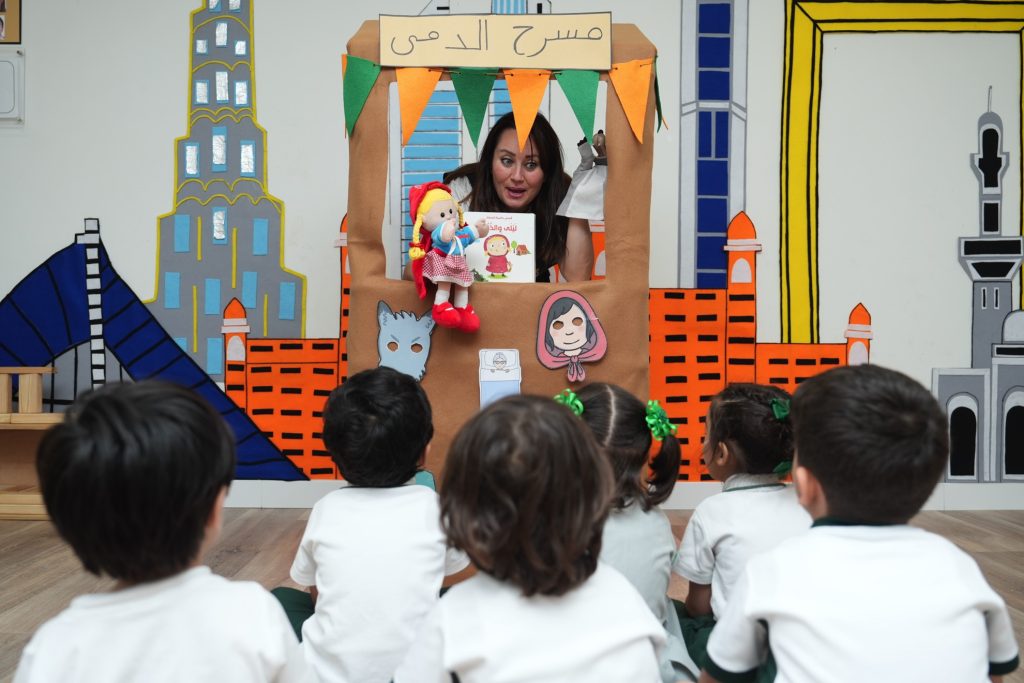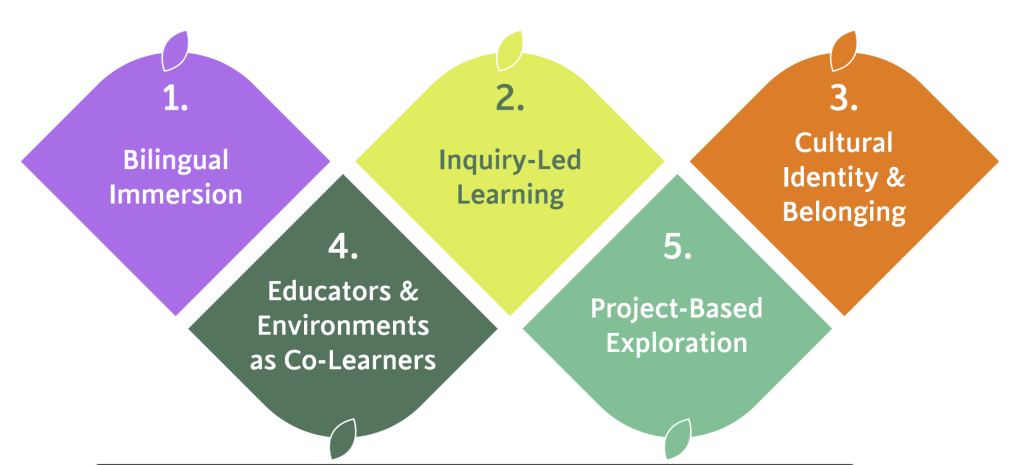Where Language, Wonder, and Identity Thrive Together



At Green Grass Nursery, we believe every child deserves to explore, express, and shine in an environment that celebrates both language and identity. Our Bilingual Inquiry Approach (BIA) delivers the EYFS curriculum through a thoughtfully curated framework inspired by Reggio Emilia and Forest School philosophies.
Children experience full-day immersion in Arabic and English, where language is brought to life through stories, play, and exploration. Using Simplified al-Fusha and functional English, we focus on expression, connection, and understanding, rather than direct translation.
This approach Envisioned and created by Arwa Naccho, Co-Founder and CEO of Green Grass Nursery, the Bilingual Inquiry Approach reflects her vision for a child-centered, bilingual, and culturally rich learning experience. Arwa’s philosophy integrates play, inquiry, and bilingual immersion to ensure that every child develops curiosity, confidence, and a lifelong love for learning.
Her approach combines the structure of EYFS with the freedom of child-led inquiry, fostering problem-solving, critical thinking, and emotional growth, while deeply respecting each child’s cultural identity.

Learning begins with a question. Guided by curiosity, children explore through dialogue, research, and creative expression, building critical thinking, independence, and a lifelong love for learning.
Children engage with their culture through stories, traditions, and daily experiences in both languages, fostering belonging, pride, and empathy.
Children engage with their culture through stories, traditions, and daily experiences in both languages, fostering belonging, pride, and empathy.
Every child’s identity is valued. Classrooms act as a “third teacher”, with open-ended materials and bilingual prompts that spark curiosity, exploration, and respect.
Educators guide through observation, dialogue, and reflection, acting as co-learners in the journey alongside children.
Children lead long-term projects born from their own questions. Through research, experimentation, and documentation, from drawings to storytelling, they develop voice, purpose, and ownership in learning.
WhatsApp us for Inquiries